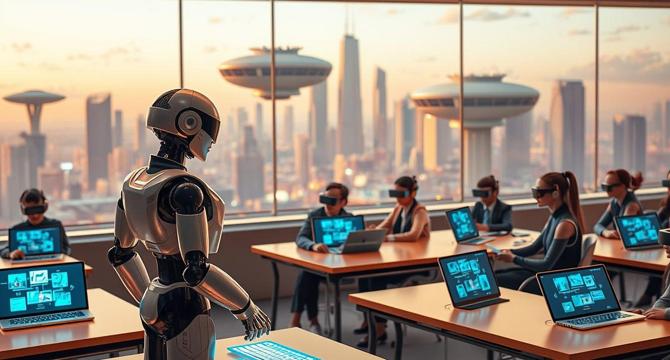Medium
4w
415

Image Credit: Medium
Robot Teachers & Hologram Tutors
- Robot teachers use artificial intelligence to adapt lessons to students' pace, while holograms provide 3D experiences of abstract ideas.
- AI in education is enhancing learning experiences rather than replacing human teachers, creating personalized and interactive learning environments.
- Machine learning customizes lessons to fit individual needs and adjusts homework based on progress, making online learning more engaging.
- AI tools in schools monitor student engagement, offer tailored hints, and combine virtual reality with hands-on activities for group projects.
- Robot teachers analyze student reactions and adjust teaching methods accordingly to enhance learning effectiveness.
- Studies show that students respond positively to robots in education, with robots being able to notice and address students' struggles more effectively than humans.
- Holographic technology in education allows for interactive learning experiences, such as exploring anatomy in medical schools and testing designs in engineering.
- Deep learning algorithms in adaptive curriculum analyze student data to tailor coursework, providing personalized learning experiences and predicting challenges.
- Machine learning raises concerns about data privacy and fairness in education, prompting the need for solutions to ensure equal opportunities for all students.
- Companies offer AI courses and certifications to equip individuals with skills for AI-related roles in education, such as AI Curriculum Designer or EdTech Specialist.
- The future of education involves a collaboration between AI tools and human curiosity, where students develop skills in analyzing algorithms and problem-solving.
Read Full Article
24 Likes
For uninterrupted reading, download the app